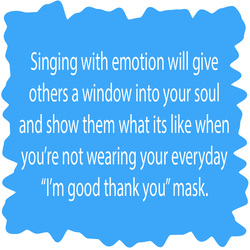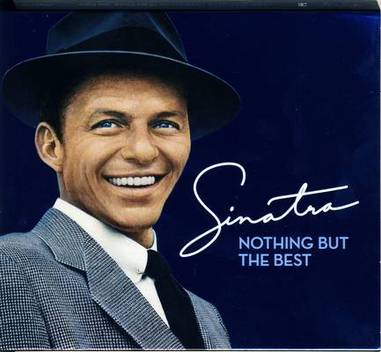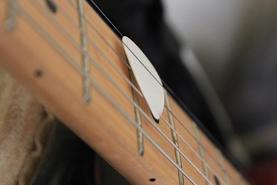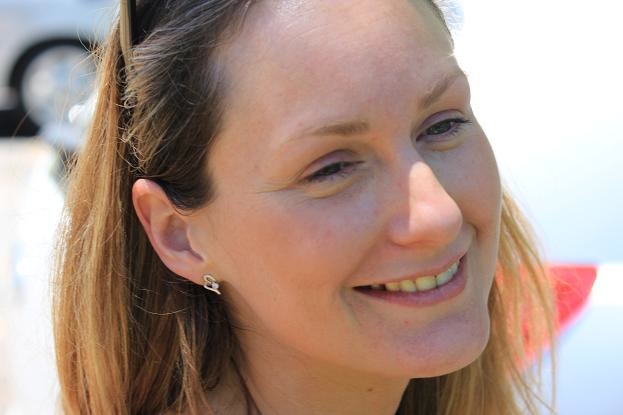|
Photo courtesy of covershut.com 'The best and most beautiful things in the world cannot be seen or even touched. They must be felt with the heart' ~ Helen Keller  Good singers are a dime a dozen, what makes a GREAT singer is their ability to sing with emotion and bring out the dynamics in a song. Singing with emotion, connects you with your audience in a very real way. They have let the audience into their world and through their voice they give the audience a glimpse into their heart and soul. Have you ever listened to a singer and felt ‘inspired’, ‘sad’, ‘angry’ or ‘happy’? And how can you bring this into your singing? Well, I’ll give you some tips to help you incorporate this into your singing. It’s not as easy as it sounds but it is possible as long as you are willing to give it a go. The easiest way to experience this, is to try using emotion in your singing with a song you have connected with already. In other words, you’ve experienced the exact same scenario as sung in that song. This is by far the easiest way to connect with a song by reliving that experience in your mind and producing that feeling into the song. Not all songs are that easy though, so my advice for you is to pick out the main emotions and feeling of the song and find something similar in your experience to help connect you with the song’s emotion. Relive it, not only in your singing but with your entire body. If it is a sad song for instance, think about how you feel when you’re feeling sad? Think of your facial expressions, think of your posture, think about the icky feeling in your chest. Then recreate it physically as well as emotionally and produce that feeling through the song. A simple exercise to practice this method of emotional singing without using songs is to re-create different emotions and just use the vowels, AY, EE, AH, OH and OO. Find a comfortable place, take a moment to recreate an emotion with your entire being, then sing one of the vowels. Sing it at the pitch and tone you want to use to create that emotion, notice how you feel while you are singing with this emotion, do you feel it within your whole body. Move around the room, try different postures and facial expressions to match the emotion. Have some fun with it! Then take a moment or two to observe how it felt afterwards. IMPORTANT NOTE: Do not force the sound. Learn to balance your voice at lower levels, and then as you master your voice at a quieter level you can send a little more air pressure through, your voice will stay balanced and open, while projecting a little further. Being able to sing loud and powerfully is a matter of becoming an expert of your voice at the lower and medium volumes, then bit by bit increase the intensity without forcing it to happen and straining your vocal chords and ending up with a sore throat. Most of all, keep it fun! When it becomes hard work we feel disheartened and then we don’t get anywhere so if you find yourself ‘thinking’ too much about it, am I doing it right or wrong. Take a breather or just sing something light and easy that you really enjoy without thinking about how you are singing it. Then revisit it. I recently read in great little book called, The Inner Game of Music that: “People ‘play’ sports and people ‘play’ music, yet both involve hard work and discipline. Both are forms of self-expression which require a balance of spontaneity and structure, technique and inspiration. Both demand a degree of mastery over the human body, and yield immediately apparent results which can give timely feedback to the performer.” So as much as you need to work on your technique, your breathing and the phrasing - it is just as important if not MORE important that you make it enjoyable and fun. We all learn faster, if we love what we are doing. Thank you for taking the time to read this blog, I hope you found this free resource valuable. I look forward to hearing what you have to say about it. Please leave your questions and comments below and I will happily answer them. Sarah Morrison
1 Comment
Here’s my story. I’ve been playing guitar for 15 years, but only really incorporated singing for the last 2 or 3. After getting together with my mate cobbling together a bunch of songs we have managed to performed 8-9 gigs over time for family and friends. I really enjoy it! However here's the rub: I lack confidence in my voice.
I have never had a singing lesson in my life and really didn't know what I was doing in regards technique so I essentially would just wing it. Doing this I found that I had more and more questions, like: Should I belt it out or do I sound better to back off? Why does the same song sound good one day but sound like a wheezing mess the next? What are my strengths? And what do I need to work on? I know you are supposed to breathe in a certain way, but how? I thought that if I just kept on singing and practicing on my own for long enough I would improve naturally and it would all be good - like I said ignorance is bliss - right? Well I finally bit the bullet and decided I needed help to work on my singing so I can be sure that I'm doing it the right way - life's too short to sing bum notes. I looked around for a singing teacher for a while and decided Sarah was right for me. I looked at her website and was impressed by her musical honesty, her clear interest in helping singers achieve their goals, and also the fact that the coaching is 1:1 and not a school type environment appealed to me. Well, how am I going? Awesome is the best word to describe it. No surprise that breathing was the first stop on my journey but what did surprise me was the difference correct breathing makes. With Sarah's coaching, my consistency from day to day has improved, I can now hear my own voice instead of the hissing, nasally sound I got used to before. Just by breathing correctly into my diaphragm I can now sing the line better than before, awesome! Especially because now I know what I need to do to improve and I can hear the results myself. I'm also getting great feedback from others that I'm improving as well. Sarah provides direction and vocal demonstrations so I know what I need to do and coaches me as I work through the piece. We work through breathing/vocal exercises for the first part, then get on with singing songs. We work on phrasing, where to breathe, tempo, pitch - the whole shebang. The thing about Sarah is that she has a relaxed style that is very easy to work with and makes you feel comfortable working at whatever pace is good for you. So ignorance may be bliss for some, but for me, working with Sarah has given me the direction and renewed enthusiasm I needed to get me out of my rut and squarely back into the middle of the road on my musical journey...........Geoff B (26/6/2012). A disclaimer for the photo above, yes it is my son a few days after birth screaming 'AH' due to the Saints and the Pies drawing in the 2010 Grandfinal! My husband would beg to differ. Do I back the Pies, yes I certainly do! (should I say this out loud... probably not) My husband on the other hand a Saints supporter - So you can only guess what an interesting labour that was!! LOL ;) If you don’t open your mouth then the sound just won’t come out! That’s why it’s important to use vowels in your vocal practice! Try this: Say ‘oo’; Now using the same mouth position you said ‘oo’ in, I want you to sing the word ‘Guitar’. How does it sound? Did it feel strange? Now, I want you to say ‘ah’; make sure you open your mouth wide, like when you yawn. Got it? Using the same mouth position I want you to sing ‘Guitar’ again. How does it sound? Does it sound clearer and much easier to sing? The position of your mouth, when singing, is paramount for a clear open tone to come out. Where your tongue is placed, also plays a part in the sound that is produced. Always make sure your tongue is relaxed on the bottom of your mouth, sitting just behind your bottom teeth. Vocal exercises don’t always sound pretty; they are designed to assist your learning of how to place your mouth when singing. So don’t be discouraged if doesn’t sound pretty. What you’re aiming for is an open and clear sound. The vowels to use in your vocal exercises are: AY as in day, stay, play (space in your mouth should be approx. 2 fingers wide) EE as in fleet, plead, speed (1 finger) AH as in guitar, fast, last (3 fingers) OH as in joke, float, close (3 fingers) OO as in taboo, food, you (whistle) These vowels can be used together or individually to work your way up and down scales. Remember that you must breathe correctly before commencing any vocal exercise and practice (see blog, ‘What happened to the singer who didn’t breathe). You may ask this question: “How does this apply to singing a song?” Look at the phrase below from the popular Cold Chisel song, ‘When the War is Over’. Underneath I have placed the vowels/mouth placement that should be used when singing these words for a clear and open tone to come out. Try it. It may feel strange at first but with practice it will become second nature to open your mouth to let that sound flow out! Try singing this: When the war is ov-er, got-ta get a-way_______ ‘ay’ ‘ah______’ ‘ee’ ‘oh-ah’ ‘ah’ ‘ah’ ‘ah-ay’ Now try singing the phrase keeping your mouth in a closed position of ‘oo’ for instance. Can you feel and hear the effect the shape of your mouth can have to the sound of a song? Important tips! When you open your mouth to sound a vowel - drop your chin. Your face and throat should feel relaxed. Breathe into the diaphragm and slowly sing the vowel of choice. If you are straining your face or throat, stop and check that you’re breathing correctly and the position of your mouth. It is useful to initially do your practice in front of a mirror so you can see the shape of your mouth when you sing and to ensure you do not lift your chest and shoulders when you take in a breath! So much to remember! I hear you say… Singing is just like any other instrument, it needs to be tuned and practiced. Enjoy it. Have fun! Also ensure you are relaxed before you start practicing and take it one step at a time. Soon enough it will all fall into place. We all crawl before we walk and walking is now easy, right?! I’d also like to recommend a fantastic resource, a book called, ‘Secrets of Singing’ by Jeffrey Allen. It’s full of vocal exercises and has great illustrations so you can also visualise what you are doing. If you have any questions or comments please email me sarah@musicalkitestring.com HABIT IS A MANS SOUL COMFORT. WE DISLIKE DOING WITHOUT EVEN UNPLEASANT THINGS ,TO WHICH WE HAVE BECOME ACCUSTOMED. ~ GOETHE. If you really want to build vocal power, you've got to build breath control and support. It is important that you become familiar with the diaphragm being the major muscle of inhalation and how to use it. So lets focus first on how to breathe correctly. Try this... Be aware of your body as you breath and notice… Is your stomach rising and falling? or Does your chest do all the work? Raising our chest and shoulders is a common habit, but it really causes us to draw a shallow breath, and this creates problems later when we need more breath to support our singing, especially for high notes or for long phrases in a song. Notice the way a baby breaths and you will see their little bellies rising and falling. This is the way we naturally breath, however somewhere along the way we have forgotten and fallen prey to laziness, stress and tension causing us to breath short shallow breaths. When you sing do you get a sore throat? Do you find it hard to sustain the high notes or even reach them? The key to unlock the answer is all in the breath control and support, along with your vocal exercises. As a singer YOU ARE the instrument, and just like any instrument the better the care, the better the outcome. If you take good care of your voice, you can look forward to learning how to produce an amazing tone and strength; which will lead to you singing with the ease and power that not only the stars do – but YOU will too! Try this… Place your hand on your stomach and breathe deeply into your diaphragm; as you do this, your hand should rise and fall as your diaphragm is filled with air. Now imagine your stomach is like a balloon as you blow it up – what happens to the balloon? As you breath out, all the way out, imagine this balloon is in your stomach. Place your hands just above your hips and feel it expand as you breathe in and deflate as you breathe out. Remember: ~ In order to care for your instrument you must breathe properly. ~ Shallow breathing into your chest will limit the quality of voice, limit your range and tire you out! Some important points to note: Our shoulders and chest area should be relaxed when we inhale. If we find that our chest area lifts up high or our shoulders are raised when we inhale, then just rest both hands on your stomach and repeat the inhalation exercise. My challenge for you is to make the breath work a part of your daily routine! Be aware of your breathing (even when you are not singing). Make a conscious effort to breathe deeply into your diaphragm. This will require some persistence though soon enough it will you will do it naturally (the way we are meant to breath). This will not only significantly help your singing, it will help your circulation of oxygen to your blood for a feeling of optimal health, energy and zest for life. To conclude I’d like to recommend ‘The Breathing Book : A Practical Guide to Natural Breathing’ by Brad Thompson. This is a great little book, packed with practical exercises to enhance your breathing as well as better understand the physiology and mechanics of breathing. Disclaimer
Before incorporating any of these practices into your routine it is the authors recommendation that if you have any health issues to consult with a health professional to ensure no pre-existing condition could be jeopardized by any of these exercises. DanceCraft Studios is hosting a fundraising event to raise money for the Bali Adoption & Rehabilitation Centre (BARC), the fundraising event will be held at Arsen Dance Studio in Elsternwick. Renay after holidaying in Bali noticed a lot of stray dogs which had been victim to abuse. In Bali many dogs die a slow and preventable death. Boiling water has been thrown at dogs to keep them away from kitchens, they get hit by cars and are left walking around with broken legs. They have venereal disease which they pass onto each other, along with other diseases, mange, flea infestations, infections and the continuous cycle of producing litter after litter ensures many helpless and vulnerable puppies will face the same fate. BARC is a non-for-profit organisation that houses over 120 rescued dogs and puppies. There aim to relieve suffering, starvation, abuse and neglect of the street dogs in Bali. The Good Karma Vet Clinic which is privately owned helps BARC to function financially. BARC provides medical care, food, shelter, rehabilitation, bedding, sterilization, vaccinations and a whole lot of love to all dogs and puppies in the centre. BARC aims to educate the community in how to care and respect these animals. They also provide adoption services. If you love music and dancing, want to check out Capoera and want to support a good cause JOIN us for a FUN filled evening which aims to raise funds to help BARC. (MKS will be performing at the beginning and throughout the evening). Saturday, 21st April 2012 7:30pm Arsen Dance Studio 480c Glenhuntly Road, Elsternwick 9943-9045 $20 Entry Fee Raffle tickets for hampers, with prizes including movie passes, gym memberships and restaurant vouchers will be sold on the night.
The first time I actually sang (performed) in front of my Dad I said, "Dad, turn around, make sure you don't look at me!” I started to sing a song I'd been practicing for a singing competition I'd entered, only to find my whole body was shaking and I couldn't sing. DEVASTATED! Yeah... However I'm not the only one that experiences those overwhelming nerves, about 6 years ago I went to a P!NK concert and she also told a similar story about making her family turn around and not look at her when she sung! Look at her now.
I won the singing competition! How did I overcome my fear? Passion for my singing and practice. I continued to practice in front of my Dad and anyone else that came into the house. Remembering that nobody wants me to fail. They all want to see me enjoy myself and do the best I can, and nobody wanted that more than I did. Knowing my song inside and out, how I was going to move while singing and how I'd use the microphone all helped, along with the supportive words of encouragement from those who I had given pre-performances, it took the edge off the nerves so I could sing. Let me close by letting you know that the nerves never leave you totally - they drive you to do better, therefore you can turn your nerves into something GREAT! Add a comment below if you have a story to share or any comments on how you have dealt with nerves or need help to overcome your fear of singing in front of people I would love to try and help. |






 RSS Feed
RSS Feed

